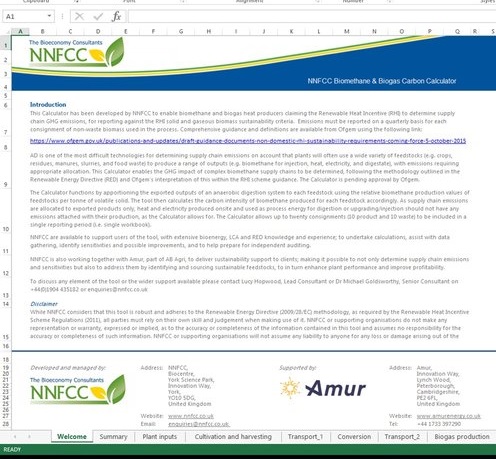The Consultation on FIT rates for AD (and MicroCHP) was
launched last May and the window for responses closed in July. The Department
for Business, Energy and Industry Strategy (BEIS) eventually published their response
last week, some seven months later. Despite the long wait, the response offered
no significant diversion from the original proposals, most of which were
greeted with somewhat mixed opinion.
A total of 76 unique responses were received, with over 446
campaign responses being received regarding proposed payment restrictions based
on feedstock for AD. This was clearly a controversial proposal, which has since
been introduced in the RHI and it was therefore almost a given it would be
translated across to the FITs for consistency and fairness.
The upshot of the BEIS response is disappointing in the
main, with only a short-term glimmer of hope for the industry with slightly
higher than proposed tariffs across the small- (<250kWe) and medium-scale
(250 – 500kWe) bands, and a tariff for the large-scale (>500kWe) band, which
was omitted from the original proposals. Despite industry’s request for a
micro-scale (<100kWe) band to be considered, this has not been introduced as
BEIS have no evidence to prove significant differences in capital costs of
plants <100kWe and up to 250kWe. There is a perception in Government that
cost-reductions will transpire in the AD sector, giving a misconception that
rapid tariff reductions will be accepted by the industry.
The default degression mechanism remains in place, despite
requests to remove this due to the current “queue” of projects awaiting pre- or
full-accreditation. This will inevitably trigger the contingent degression in
each period, resulting in us being back at current-day, unviable tariff levels
within a matter of months rather than years.
As AD is the only biomass-fuelled technology included in
FITs it was questionable whether introducing sustainability criteria and
feedstock restrictions, as proposed and applicable in other schemes (which also
feature solid biomass combustion), would be a cost-effective action or whether
it would become more of a burden than a benefit. However, the proposals have
transpired and the new criteria and restrictions will come into force from 1st May 2017.
The only significant concern here is an administrative one,
with concerns raised about the burden and cost of evidencing compliance, but to
this end, tools exist to assist plant operators, such as the NNFCC’s Biogas & Biomethane Carbon Calculator which is FIT-ready in anticipation of this
occurring. If looking for positives, where a plant is also accredited under the
RHI it will not also be required to report under the FIT scheme, so an element
of pragmatism has been applied here at least.

A summary of the new regulations is provided below, and full
details are available in the BEIS publication which is available here.
- As a result of reviewing the assumptions used to set tariff levels, in particular around gate fees, useable heat and feedstock mix, the generation tariffs will be increased on 01 April 2017 to:
- <250kWe = 6.93p/kWh
- 250 – 500kWe = 6.56p/kWh
- >500kWe = 2.49p/kWh
- Sustainability criteria will be introduced in a similar way to already applies in parallel schemes, the Renewable Heat Incentive (RHI) and the Renewables Obligation (RO); applicable to all new installations from 01 May 2017.
- The minimum GHG threshold will be lower than applies in the RO currently; set for the FIT at 66.7gCO2eq/MJ, compared to 79.2gCO2eq/MJ in RO (although this is set to lower in 2020).
- Feedstock restrictions will be introduced, in the same way as are imminent in the RHI; payments for electricity not derived from the digestion of wastes and residues will be limited to 50% of the total biogas yield, on an annual basis.
- Plants that have applied for pre-accreditation before 01 May 2017 and successfully secure a quarterly cap will not be required to meet the sustainability criteria and feedstock restrictions.
- All wastes and residues should be considered carefully by operators to ensure that the waste hierarchy has been applied and alternative markets considered before conversion to electricity through anaerobic digestion.
- Annual independent audits will be required for plants with a total installed capacity >1MWe
- Where a plant is also accredited under the RHI, the operator will only need to comply with the RHI regulations on sustainability and feedstock restrictions.
NNFCC provides policy and regulatory support to AD
developers, operators, investors and suppliers, to help navigate this highly
complex and somewhat confusing area. If you are unsure how these new rules will
impact on your business, or wish to explore new business opportunities please
get in touch with Lucy Hopwood, Lead Consultant for Bioenergy and AD on l.hopwood@nnfcc.co.uk or call +44(0)1904
435182.